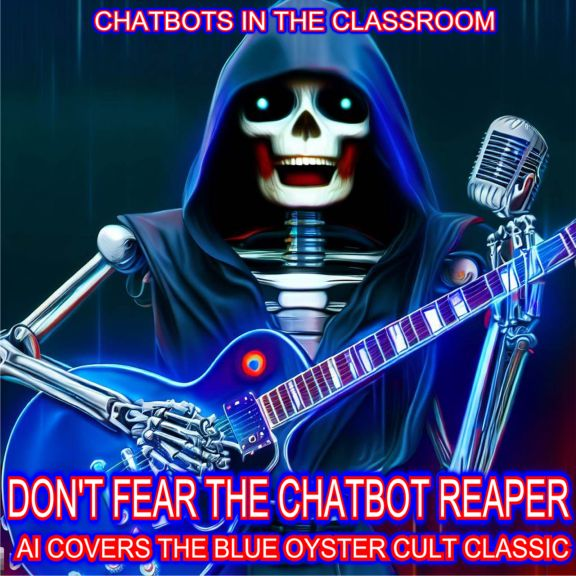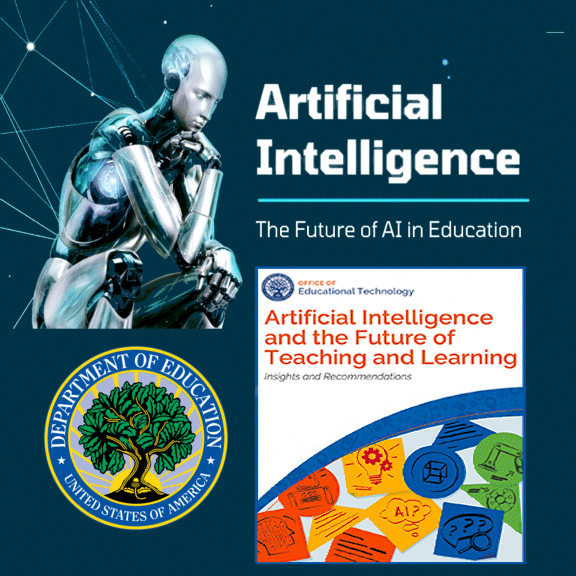
Yesterday’s Gems, Today’s Insights
A Roundup of the Web’s Finest Blog Posts!
7-15-25

The article discusses how the Republican Party uses cultural issues to distract voters from their policies, focusing on manufactured controversies like Critical Race Theory, transgender rights, immigration, and now Superman. The GOP's culture war tactics are aimed at stoking fear and outrage, often distorting harmless or progressive ideas—such as Superman's immigrant story and values of kindness—into ideological battles. This strategy allows them to sidestep substantive discussions about their governance while rallying their base. The coordinated media outrage over the new Superman movie exemplifies this pattern, highlighting the reflexive opposition within conservative media.
### Key Points
- The GOP uses cultural issues like CRT, transgender rights, and immigration to distract voters from their policies.
- Republicans have manufactured outrage over Superman's immigrant story and kindness values, branding it "Superwoke."
- Conservative media amplifies these controversies, creating coordinated narratives to fuel outrage and opposition.
- The right-wing ecosystem turns innocuous ideas into ideological battles, demonstrating its need for constant outrage.
Measles, officially eradicated in the U.S. in 2000, has resurged due to declining vaccination rates fueled by anti-vaccine sentiment, particularly following the COVID pandemic. In 2025, cases have reached an alarming high, with outbreaks concentrated in the Southwest and spreading across 38 states. Experts warn of severe consequences, including potential loss of elimination status and increased vulnerability to other preventable diseases. Measles can lead to severe health outcomes, such as pneumonia, brain damage, and immune amnesia, which heightens susceptibility to future infections. Public health officials urge improved vaccination rates to prevent further outbreaks.
### Key Points
- Measles has returned in the U.S. after being eradicated in 2000, with 2025 seeing the highest cases in decades.
- Declining vaccination rates, driven by anti-vaccine movements, are the primary cause of the resurgence.
- The largest outbreak began in a Mennonite community in West Texas and spread across 38 states, highlighting vulnerabilities.
- Measles poses severe health risks, including pneumonia, brain swelling, immune amnesia, and rare neurological conditions.
- Experts fear losing the U.S.'s elimination status if vaccination rates do not improve.
Trump's latest executive order eliminates the use of "disparate impact" in enforcing civil rights laws, a tool crucial for identifying policies that disproportionately harm minorities. This decision undermines decades of progress in addressing systemic discrimination in education, employment, housing, and other areas. Critics argue it will weaken protections for marginalized communities and face legal challenges, as disparate impact has been upheld by Congress and the Supreme Court. The move reflects broader efforts to roll back civil rights enforcement, sparking concerns about equity in schools and beyond.
### Key Points
- Trump issued an executive order banning the use of "disparate impact" in civil rights investigations, which has been essential for identifying systemic discrimination.
- Disparate impact measures the disproportionate harm of neutral policies on minority groups, even without explicit intent to discriminate.
- The Trump administration previously attempted to repeal disparate impact regulations in 2018, and this new order builds on those efforts.
- Academic research and federal investigations have long documented racial disparities in school discipline, highlighting the need for disparate impact analysis.
- The Biden administration tried to restore disparate impact rules but provided limited guidance, leaving enforcement inconsistent.
- Trump's order faces legal challenges, as disparate impact was codified by Congress in 1991 and upheld by the Supreme Court in 2015.
- Native American students in Rapid City, South Dakota, experienced significant disparities in discipline, but a consent decree addressing these issues was terminated by Trump’s administration.

Explores the global issues of climate change, oligarchy, and education reform, highlighting the roles of figures like Bill Gates, AI platforms, and grassroots movements. It emphasizes the urgency of addressing climate change through mitigation and adaptation strategies, such as transitioning to renewable energy, protecting ecosystems, and individual actions. The article also discusses the importance of resisting authoritarianism through organized efforts like the "One Million Rising" initiative and advocates for public education reform against privatization.### Key Points
- AI platforms agree on human-induced climate change as the main driver of extreme weather, emphasizing greenhouse gases and feedback loops.
- Solutions include transitioning to renewable energy, ecosystem restoration, climate-resilient infrastructure, and individual advocacy.
- Grassroots movements like "One Million Rising" focus on organizing against authoritarianism and promoting community power.
- Concerns about oligarchy and privatization highlight the need for public education reform and resisting billionaire influence.
Big Education Ape: EPSTEINGATE: THE BILLIONAIRES' BAD BOYS CLUB AND THE DEEP STATE https://bigeducationape.blogspot.com/2025/07/epsteingate-billionaires-bad-boys-club.html
The article explores the Epstein scandal, highlighting its intersections with wealth, power, and secrecy. It critiques the influence of oligarchs, including figures like Bill Gates, on politics, media, and education reform. The piece calls for grassroots movements to challenge systemic inequalities and demand accountability from the elite.
### Key Points
- The Epstein scandal reflects how wealth and power shield elites from justice, intertwining with government and media manipulation.
- Public skepticism is rooted in historical examples of hidden truths involving influential figures, such as JFK’s assassination.
- Epstein’s “Pleasure Island” and “Lolita Express” symbolize a dark underbelly of elite misconduct tied to global oligarchs.
- Bill Gates’ connections to Epstein raise questions about extortion, philanthropy, and education reform initiatives like Common Core.
- The disparity in justice for the wealthy versus average citizens highlights systemic inequalities.
- A call for overturning Citizens United and grassroots movements to reclaim power and demand transparency.
Big Education Ape: LET'S CHECK THIS WEEK'S TOP NEWS AND OTHER STORIES 7-12-25 https://bigeducationape.blogspot.com/2025/07/lets-check-this-weeks-top-news-and_12.html
### Key Points
- Trump’s threats to revoke citizenship from critics highlight escalating political issues.
- Mediocrity in U.S. schools is analyzed in terms of systemic educational challenges.
- Predictions of a public education crisis due to systemic failures.
Big Education Ape: FASCISM BY ANY OTHER NAME: THE MAGAFICATION OF AMERICA https://bigeducationape.blogspot.com/2025/07/fascism-by-any-other-name-magafication.html
Explores the tactics and ideologies of authoritarianism in contemporary U.S. politics, particularly under Trump’s administration. The article draws parallels between historical fascism and current trends, emphasizing executive overreach, propaganda, militarization, and scapegoating. While America hasn’t fully embraced fascism, the seeds of authoritarianism are present. It advocates for resistance movements like "One Million Rising" and grassroots organizing to defend democracy.
### Key Points
- Analysis of Trump’s authoritarian tendencies, including cult of personality and executive overreach.
- ICE operations and militarized immigration enforcement under Trump.
- Propaganda and "alternative facts" shaping public perception.
- Scapegoating marginalized groups as a political strategy.
- Resistance movements like "One Million Rising" mobilizing against authoritarianism.
- Historical comparisons and warnings about authoritarianism-lite in America.
Big Education Ape: JEFFREY EPSTEIN COMMITS SUICIDE: AGAIN https://bigeducationape.blogspot.com/2025/07/jeffrey-epstein-commits-suicide-again.html
Chuck Feeney died on October 9, 2023, at the age of 92. I wrote this in 2017 | The Merrow Report https://themerrowreport.com/2025/07/13/chuck-feeney-died-on-october-9-2023-at-the-age-of-92-i-wrote-this-in-2017/
Charles Feeney, co-founder of Duty Free, passed away on October 9, 2023, at the age of 92. Known for his exceptional philanthropy, Feeney donated $8 billion of his self-earned wealth to causes like higher education, public health, human rights, and scientific research, while keeping only $2 million for himself and his wife. Unlike other public figures, Feeney operated anonymously for most of his philanthropic career, avoiding public recognition. The article recounts how Feeney’s anonymous foundation saved the author’s career in 1994 by funding his projects and enabling the creation of Learning Matters, a non-profit organization that focused on education reporting and thrived for 20 years. Feeney’s legacy exemplifies humility, generosity, and dedication to impactful change.### Key Points
- Charles Feeney, a billionaire philanthropist, donated $8 billion of his fortune to various causes, prioritizing anonymity.
- Feeney’s donations supported higher education, public health, human rights, and scientific research, with Cornell University being a major beneficiary.
- The author recounts a personal story of how Feeney’s anonymous foundation provided crucial financial support to complete two films and establish the non-profit Learning Matters.
- Learning Matters, funded by Feeney, went on to produce award-winning educational content and train skilled producers.
- Feeney’s life serves as a model of selfless giving and contrasts with other public figures who seek recognition for their philanthropy.
Education Research Report: A High-School Exit Exam in Science: Consequences https://educationresearchreport.blogspot.com/2025/07/a-high-school-exit-exam-in-science.html
### Key Points- The study investigates the implementation of a science testing requirement for high-school graduation in Massachusetts and its consequences.
- Science test performance has improved across all demographic groups, but there is increasing inequality in failure rates and retest success, particularly among English learners (8% of test-takers, yet 53% of those who never pass).
- Family income significantly affects test outcomes, even when controlling for prior scores, raising concerns about equity.
- Barely passing the exam positively impacts high-school graduation and college outcomes, especially for females and students from higher-income families.
Teacher Tom: "All Human Acts are Committed on Insufficient Information" https://teachertomsblog.blogspot.com/2025/07/all-human-acts-are-committed-on.html
Teacher Tom reflects on the human condition through a story of a hesitant preschooler contemplating a jump off a table. He explores the idea that all human actions are made with insufficient information, highlighting the courage and doubt inherent in decision-making. The article ties this concept to play-based learning and the broader narrative of human experiences.### Key Points
- A preschooler hesitates to jump off a table, illustrating the human struggle with acting on insufficient information.
- Marge Piercy's quote, "All human acts are committed on insufficient information," serves as a thematic anchor for the story.
- The girl ultimately chooses caution, climbing down instead of jumping, but still engages with her friends, emphasizing the inevitability of taking chances in life.
- Teacher Tom connects this experience to the broader concept of play-based learning and human growth through decision-making.
- The blog promotes Teacher Tom's educational philosophy, resources, and services, including his top posts and speaking engagements.
No-Confidence Votes Signal Crisis in Education – Cloaking Inequity https://cloakinginequity.com/2025/07/14/no-confidence-votes-signal-crisis-in-education/
No-Confidence Votes Signal Crisis in Education### Key Points
- The University of Virginia Faculty Senate voted no confidence in the Board of Visitors after the board failed to defend UVA President Jim Ryan against political interference threatening academic freedom and institutional values.
- No-confidence votes signify institutional ruptures, reflecting a breakdown in trust and alignment between leadership and community values.
- Examples of confidence crises include Western Michigan University, where leadership faced two no-confidence votes due to governance failures and declining enrollment, and the University of Michigan, where faculty censured the Board of Regents for undermining shared governance.
- Similar issues have arisen in K–12 education, with no-confidence votes reflecting dissatisfaction over authoritarian leadership styles, lack of transparency, and disregard for community input.
- No-confidence votes often reveal deeper systemic issues, such as eroded trust, sidelined governance, and misaligned institutional priorities.
- Effective leadership requires integrity, transparency, and trust-building to prevent confidence crises and ensure institutional resilience.
glen brown: Stopping Trump Isn't Enough https://teacherpoetmusicianglenbrown.blogspot.com/2025/07/stopping-trump-isnt-enough.html
Stopping Trump Isn't Enough### Key Points
- Mahmoud Khalil, a Columbia University student, was unjustly detained and seeks accountability for harm caused by the Trump administration's unconstitutional actions.
- Khalil filed a claim under the Federal Tort Claims Act, seeking $20M in damages or an official apology and policy reversal.
- The Trump administration allegedly targeted legal residents for their speech, violating constitutional rights and causing emotional and economic harm.
- Efforts to hold MAGA operatives accountable include lawsuits, professional sanctions, and whistleblower revelations.
- The Supreme Court and MAGA lawmakers have expanded executive power, shielding Trump and his administration from consequences.
- Creative mechanisms and voter action are necessary to restore the rule of law and combat ongoing abuses.
David Labaree on Schooling, History, and Writing: Public Schooling as Social Welfare | National Education Policy Center https://nepc.colorado.edu/blog/public-schooling-social
The article explores the multifaceted roles of public schooling in the United States, emphasizing its evolution from a political tool for creating citizens to a mechanism for social welfare. It highlights how schools have taken on welfare functions due to the lack of a robust social safety net in the U.S., providing services such as meals, health care, child care, and safe spaces. The COVID-19 pandemic underscored these roles, revealing the deep reliance on schools for various social welfare functions. The author critiques the U.S. approach of prioritizing schooling over direct welfare interventions and calls attention to systemic failures in addressing poverty and inequality.
### Key Points
- Public schooling in the U.S. originally aimed to create citizens for the republic but evolved to provide opportunities for individuals to escape poverty.
- Schools have increasingly taken on social welfare functions, such as providing meals, health care, child care, and safe spaces.
- The COVID-19 pandemic highlighted the essential social welfare roles schools play, such as child care, nutrition, and mental health support.
- Schools act as a public good, benefiting society at large, but also as a private good, creating social inequalities through exclusive benefits like credentials.
- The U.S. historically chose schooling over establishing a welfare state, focusing on future opportunities for children rather than addressing immediate needs.
- Schools provide critical support for disadvantaged children but fail to address systemic poverty effectively.
- The absence of schools during the pandemic revealed their importance in social welfare and the shortcomings of relying solely on education to address societal issues.
- Public schooling serves as a "balance wheel" of American social life but remains insufficient as a substitute for a robust welfare system.
The Problem with Oligarchy: Global Voices Expose Bill Gates and the Billionaire Power Grab From Classrooms to Clinics to Croplands, Bill Gates is Leading a Global Assault on the Common Good https://open.substack.com/pub/jessehagopian/p/the-problem-with-oligarchy-global?r=kja7f&utm_campaign=post&utm_medium=web&showWelcomeOnShare=false
The Problem with Oligarchy: Global Voices Expose Bill Gates and the Billionaire Power Grab### Key Points
- The article discusses a panel titled “Gates’s Global Power Grab: Building a Movement Against Oligarchy,” which critiques Bill Gates's influence on global education, health, and agriculture.
- Bill Gates has been criticized for using his wealth to enforce reforms in U.S. education, including high-stakes testing, charter school expansion, and data-driven education, often at the cost of public schools and teacher autonomy.
- Gates's silence on issues like the banning of antiracist education and Black history highlights the selective priorities of billionaire philanthropy.
- The article argues that Gates’s philanthropy is a form of oligarchy, where billionaires exert control over public goods like education, health, and agriculture under the guise of generosity.
- International perspectives were shared on Gates's harmful influence in areas like food sovereignty, patent monopolies, and global health, emphasizing the need to resist such power grabs.
- The author recommends reading “The Bill Gates Problem” to better understand how billionaire philanthropy shapes global decision-making.
Choosing Democracy: Who Are ICE - Political Police officers > https://choosingdemocracy.blogspot.com/2025/07/who-are-ice-political-police-officers.html
### Key Points- An off-duty Border Patrol agent, Isaiah Hodgson, was arrested in Long Beach, California, for resisting officers, injuring an officer, and weapons-related crimes after a drunken incident at a bar.
- The incident underscores that federal agents can be held accountable under the law when they commit crimes, with LA County DA Nathan Hochman emphasizing that "no one is above the law."
- The blog post advocates for more state and local law enforcement to hold federal agents accountable for misconduct.
- The blog is part of a broader discussion on democracy and public issues, with additional topics like ICE's role and other political developments featured in its archive.
The California Department of Education (CDE) has opened the School Nutrition Programs (SNP) Annual Update in the Child Nutrition Information and Payment System (CNIPS) for School Year (SY) 2025–26 (July 1, 2025, through June 30, 2026) https://www.cde.ca.gov/ls/nu/sy25-26annualupdateopen.asp
The California Department of Education (CDE) has opened the School Nutrition Programs (SNP) Annual Update for the 2025–26 school year in the Child Nutrition Information and Payment System (CNIPS). SNP operators must complete required updates, with detailed instructions provided to ensure accuracy. Administrative reviews and submission deadlines are emphasized, along with resources for assistance.### Key Points
- The CDE has opened the SNP Annual Update for SY 2025–26 in CNIPS, allowing operators to complete required updates.
- Applications must be approved by Nutrition Services Division (NSD) before reimbursement claims can be submitted.
- SFAs scheduled for administrative reviews should complete updates promptly, as they are necessary for on-site reviews.
- Step-by-step instructions for completing updates are available in CNIPS under "Download Forms."
- Seamless Summer Option (SSO) applications should not be submitted until spring after meal plans are finalized.
- Resources include SNP specialists, CNIPS training manuals, and technical help desks for assistance.
- Updates related to competitive foods, SUN Bucks resources, and federal meal pattern requirements were recently announced.
Teachers Work in Systems We Did Not Create https://teacherinastrangeland.blog/2025/07/14/teachers-work-in-systems-we-did-not-create/ via @nancyflanagan
### Key Points- The author reflects on attending ed-tech conferences like MACUL, initially seeking tools to simplify teaching but realizing these tools often focused on administrative tasks rather than fostering creativity in education.
- Music education is critiqued for emphasizing standardization (e.g., playing pre-written pieces) over creativity, improvisation, and joy, which limits students' exploration of their own musical ideas.
- Despite the potential of technology to encourage creativity in music, early ed-tech solutions primarily targeted administrative efficiency and teacher-directed classroom tools, neglecting student-led experimentation.
- The author questions the push to integrate AI into classrooms, highlighting ethical concerns, lack of teacher input, and the potential stifling of student creativity.
- The overarching critique is that teachers are often forced to adapt to systems and technologies they did not design, leading to misaligned priorities in education.
Arizona: A Tale of Two School Systems, by @TheAndySpears https://open.substack.com/pub/theeducationreport/p/arizona-a-tale-of-two-school-systems?r=kja7f&utm_campaign=post&utm_medium=web&showWelcomeOnShare=false
### Key Points- Arizona's universal school voucher system disproportionately benefits wealthy families, providing them with discounts while public school students face inadequate funding.
- Over $440 million in taxpayer dollars remains unused in voucher accounts, which could have been invested in public education or used to lower college costs for all students in Arizona.
- State law allows unused voucher funds to roll over for post-secondary education, leading to significant accumulation in individual accounts, with some holding over $200,000.
- Advocates question the fairness of using public funds for private benefits and suggest reallocating these funds to improve public education or support state colleges.
Live Aid: The Day The Music Mattered https://www.changethelausd.com/live_aid_the_day_the_music_mattered
Looking back at Live Aid, the iconic 1985 global music event organized by Bob Geldof, the article reflects on its impact in raising $245 million for famine relief in Africa and inspiring future humanitarian concerts. The day showcased legendary performances, particularly Queen's historic set, and highlighted the power of music to drive social change. The author contrasts the compassion of Live Aid with today's political and cultural climate, questioning whether such collective action is still possible.### Key Points
- Live Aid, a global concert organized by Bob Geldof, raised $245 million for famine relief and united audiences worldwide.
- Queen’s performance, alongside other legendary acts, became a defining moment in rock history, showcasing music’s ability to energize and inspire.
- The event marked a cultural shift, contrasting the activism of Live Aid with the corporatized and apolitical music industry of today.
- The author reflects on the significance of Live Aid as a call to action and questions whether such compassion can be revived in modern times.

### Summary
The article is a compilation of discussions on education, politics, societal issues, activism, and systemic challenges. It highlights scandals, authoritarianism, grassroots movements, and advocacy efforts, emphasizing the need for transparency, equity, and resistance against oppressive systems.
### Key Points
- The Epstein scandal exposes the intersections of power, wealth, and secrecy, raising concerns about the influence of billionaires and the "Deep State."
- Bill Gates' ties to Epstein and his global influence on education reform, philanthropy, and systemic inequalities are critiqued.
- Trump's administration is characterized by authoritarian tendencies, including executive overreach, propaganda, scapegoating, and militarized immigration enforcement.
- Grassroots movements like "One Million Rising" advocate for strategic non-cooperation and community organizing to combat authoritarianism.
- Public education is under threat from budget cuts, privatization, deregulation, and inequitable policies under Trump's administration.
- Higher education reforms limit accessibility for low-income students, while prioritizing trade programs over traditional academia.
- Advocacy for overturning Citizens United and demanding transparency in scandals like Epstein's is emphasized as a solution to oligarchic control.
- The misuse of vouchers and privatization harms public schools, creating inequities and benefiting wealthier families.
- The politicization of public health measures and declining vaccination rates under the Trump administration have led to public health crises.
- The "dispensing power" under Trump threatens constitutional governance, allowing selective enforcement of laws and further politicizing education.
- Charles Feeney's legacy of selfless philanthropy contrasts with other public figures seeking recognition for their giving.
- Music education and green spaces enhance mental health and emotional regulation, highlighting their importance in education.
- Resistance to systemic failures in disaster preparedness, education policies, and societal inequities is crucial for marginalized communities.
- Historical events like the Scopes trial and their cultural impacts are revisited alongside current education challenges.
- AI misuse and ethical concerns in programming and education are highlighted, particularly in relation to Elon Musk's chatbot Grok.
The "One Million Rising" initiative promotes strategic peaceful non-cooperation and community organizing to combat authoritarianism.
One Million Rising: Strategic Non-Cooperation to Fight Authoritarianism · No Kings
https://www.mobilize.us/nokings/event/803953/
Across the country, authoritarian forces are getting bolder and more dangerous. Trump and his allies are not hiding their agenda: mass deportations, rollbacks of civil rights, weaponized courts, and full-scale attacks on our democracy. We don’t have to wait until it’s too late. We can stop this. But it’ll take all of us—not just on single days of mass action, but through sustained organizing in our communities.
That’s why this summer, we’re launching One Million Rising—a national effort to train one million people in the strategic logic and practice of non-cooperation, as well as the basics of community organizing and campaign design. This is how we build people power that can’t be ignored. You’re invited to join us—and lead.
Let’s build a force bigger than fear and louder than hate. Let’s get ready. Let’s get organized. Let’s stop Trump. https://www.mobilize.us/nokings/event/803953/

Take action with AFT
Check out our Highest Priority Events and filter our feed using the tag #aftvotes to find ways to get involved with AFT!
https://www.mobilize.us/aft/?org_ids=7229

































































